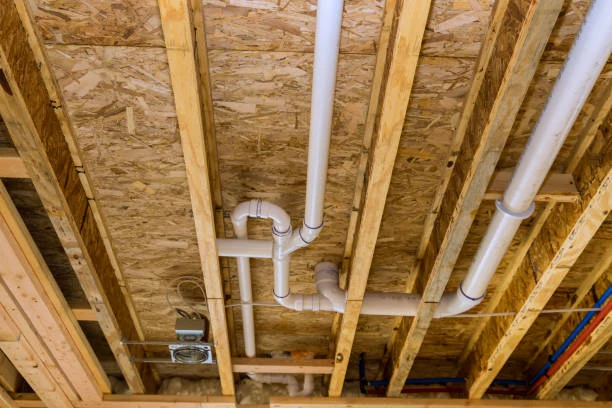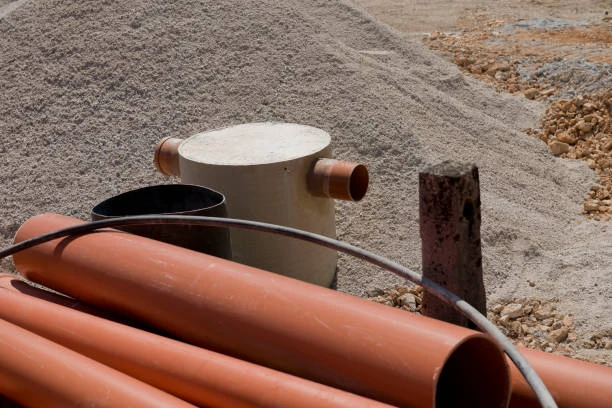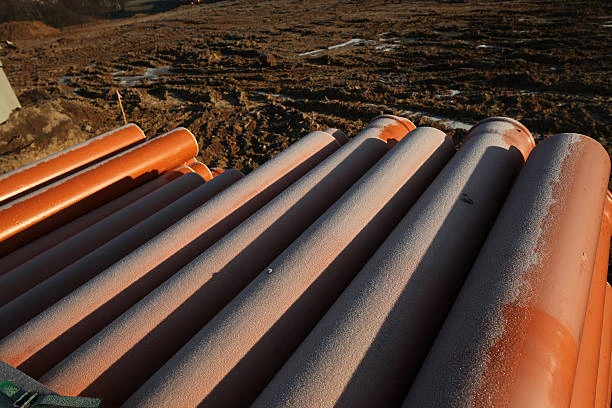The world of CPVC hardware accessories has been at the forefront of many discussions due to recent misleading reports that question their safety and reliability. CPVC thread fittings, known for their durability and resistance to corrosion, see widespread use in various industries, including plumbing, water treatment, and chemical processing. However, these reports have raised doubts about the materials’ performance and their long-term impact on safety standards.
In this article, we will explore the misconceptions spread by these reports, the industry’s response to these challenges, and why CPVC hardware accessories, particularly CPVC thread fittings, remain an essential part of modern infrastructure. We’ll also take a look at the real advantages of CPVC fittings and how they align with global safety standards.
What Are CPVC Thread Fittings?
CPVC thread fittings are specialized plumbing and industrial connectors made from chlorinated polyvinyl chloride. These fittings join CPVC pipes and ensure the safe transport of liquids and gases, especially in hot water systems, industrial applications, and chemical industries. Many prefer them for their:
- Corrosion resistance: CPVC fittings do not rust or corrode like metal alternatives.
- Heat resistance: CPVC is capable of withstanding high temperatures, making it ideal for hot water systems.
- Cost-effectiveness: Compared to metal fittings, CPVC fittings are more affordable and lightweight.
The Misleading Report: What Went Wrong?
A recent report caused waves in the industry by claiming that CPVC hardware accessories, particularly CPVC thread fittings, have a limited lifespan and are prone to failure in high-pressure environments. The report also suggested that these fittings might release toxic substances under certain conditions, which could pose a risk to public health.
This alarmist perspective led to widespread concern and calls for increased scrutiny of CPVC products. However, these claims were based on outdated data, limited sample sizes, and laboratory conditions that did not accurately reflect real-world usage. Industry experts and manufacturers quickly pushed back, emphasizing that CPVC thread fittings are safe, reliable, and meet stringent international standards.
The Industry’s Response: Setting the Record Straight
1. CPVC Thread Fittings Meet Rigorous Standards
One of the primary ways the industry is addressing the misleading report is by reinforcing that CPVC thread fittings meet or exceed global safety standards. These fittings are rigorously tested to ensure they perform safely under a wide range of conditions.
FDA Compliance
CPVC thread fittings used in water systems and food-related applications receive FDA approval for drinking water use, confirming that they do not leach harmful substances. This approval process ensures that CPVC fittings are safe for public health and meet stringent regulatory requirements.
ASTM Standards
CPVC products also adhere to ASTM (American Society for Testing and Materials) standards. These standards ensure that the fittings can handle pressure and temperature variations, preventing leaks and failures. CPVC thread fittings are tested for impact resistance, tensile strength, and durability.
2. No Evidence of Toxicity in Real-World Applications
While some studies may indicate that certain conditions could cause harmful reactions with CPVC, these scenarios are rare and occur under extreme conditions, such as very high temperatures and inappropriate chemical exposure. In typical applications, such as residential plumbing and industrial systems, people consider CPVC fittings safe.
Why CPVC Thread Fittings Remain Safe and Reliable
1. Superior Corrosion Resistance
Unlike metal pipes and fittings, CPVC thread fittings are impervious to rust and corrosion. This quality is particularly important in applications involving harsh chemicals or water that may corrode other materials. Corrosion can weaken the structure of plumbing systems, leading to leaks, contamination, and system failures.
2. High Temperature Resistance
CPVC can handle temperatures up to 200°F (93°C), making it an ideal choice for systems that require hot water transport. Unlike other plastic materials, CPVC retains its integrity even under continuous exposure to high heat.
3. Durability in Harsh Environments
CPVC thread fittings are widely used in industrial applications where chemicals and high-pressure systems are common. Their resistance to abrasion and chemical corrosion makes them highly durable in these demanding environments.
4. Cost-Effectiveness
One of the main reasons why CPVC thread fittings are so popular is their cost-effectiveness. They are less expensive than metal counterparts like brass or stainless steel, while offering similar performance in terms of durability and safety.
The Global Standardization of CPVC Hardware Accessories
CPVC hardware accessories, including thread fittings, belong to a globally standardized product category. Manufacturers produce these products in compliance with ISO (International Organization for Standardization) and other international quality and safety standards. Regular laboratory testing and compliance with national and international regulations demonstrate their reliability.
Applications of CPVC Thread Fittings
1. Residential Plumbing
CPVC thread fittings are commonly used in residential plumbing systems to connect pipes carrying hot and cold water. The material’s resistance to corrosion and heat makes it a reliable choice for household water distribution.
2. Industrial Systems
In industrial applications, CPVC thread fittings are used in systems that carry chemicals, acids, or hot water. Their durability and resistance to chemical reactions make them an ideal choice for industries that require safe, long-lasting piping solutions.
3. Food and Beverage Industry
CPVC fittings are FDA-approved for use in food processing and water systems in the food industry. These fittings ensure that no harmful chemicals leach into the water or food products, maintaining hygiene and safety.
4. Agriculture and Irrigation Systems
In agriculture, CPVC fittings are used for irrigation systems. Their durability under pressure and resistance to corrosion ensure that the fittings will provide reliable performance even in harsh outdoor conditions.
Addressing the Concerns: Industry Safeguards and Testing
1. Ongoing Quality Assurance
Manufacturers of CPVC hardware accessories invest heavily in quality assurance programs. These programs ensure that products meet or exceed all necessary safety standards. Regular third-party testing and certification help reinforce the safety and reliability of CPVC fittings.
2. Advancements in Technology
The CPVC industry continues to evolve with technological advancements that improve the material’s performance. New manufacturing techniques and improved formulations of CPVC developers enhance strength, durability, and heat resistance, ensuring that the products meet changing regulatory demands.

Conclusion: The Future of CPVC Hardware Accessories
Despite misleading reports, CPVC thread fittings remain a safe and reliable choice for a wide range of applications. Their non-corrosive nature, ability to withstand high temperatures, and cost-effectiveness make them an essential component in plumbing, industrial, and food safety systems. As the industry continues to evolve, CPVC products will continue to meet international safety standards and offer robust solutions for various sectors.
FAQs About CPVC Thread Fittings
1. Are CPVC thread fittings safe for drinking water systems?
Yes, CPVC thread fittings are FDA-approved for use in drinking water systems, ensuring they are safe and do not leach harmful substances.
2. How durable are CPVC thread fittings in high-pressure systems?
CPVC thread fittings are designed to handle high-pressure environments and are rigorously tested to ensure they perform reliably under such conditions.
3. Can CPVC thread fittings be used for hot water systems?
Yes, CPVC fittings are highly resistant to heat and can safely transport hot water up to 200°F (93°C).
4. What industries use CPVC thread fittings?
CPVC thread fittings are used in residential plumbing, industrial systems, food and beverage industries, and agricultural irrigation systems.
5. How does CPVC compare to metal pipe fittings?
CPVC thread fittings are more cost-effective and resistant to corrosion compared to metal fittings, making them ideal for long-term use in various applications.


















